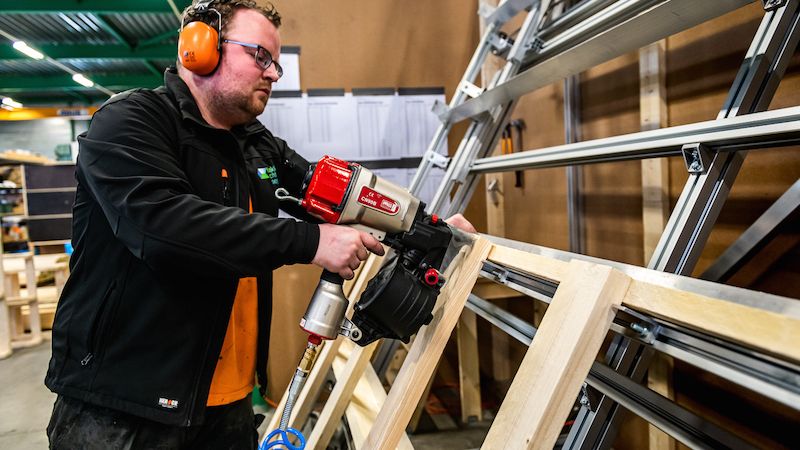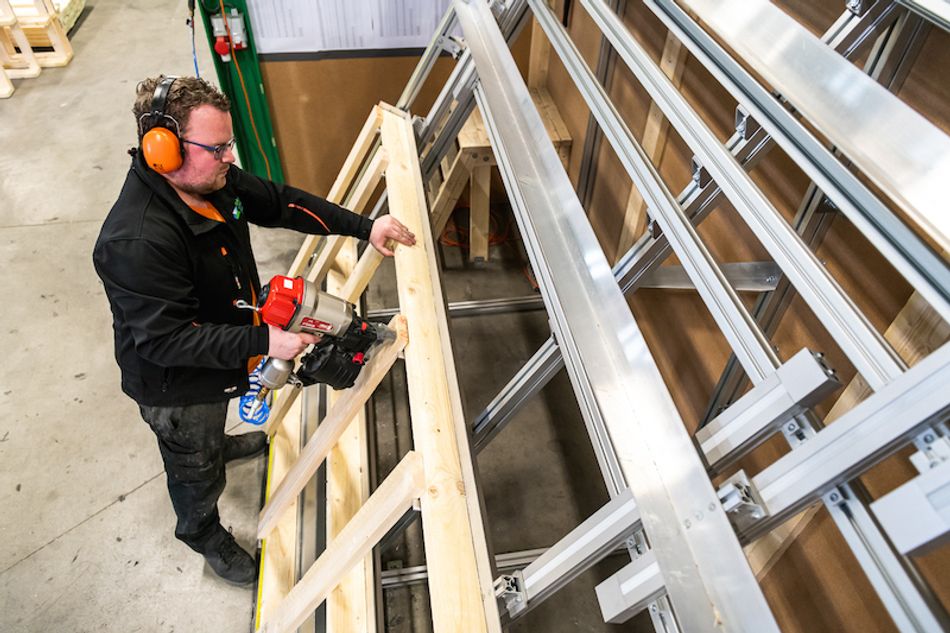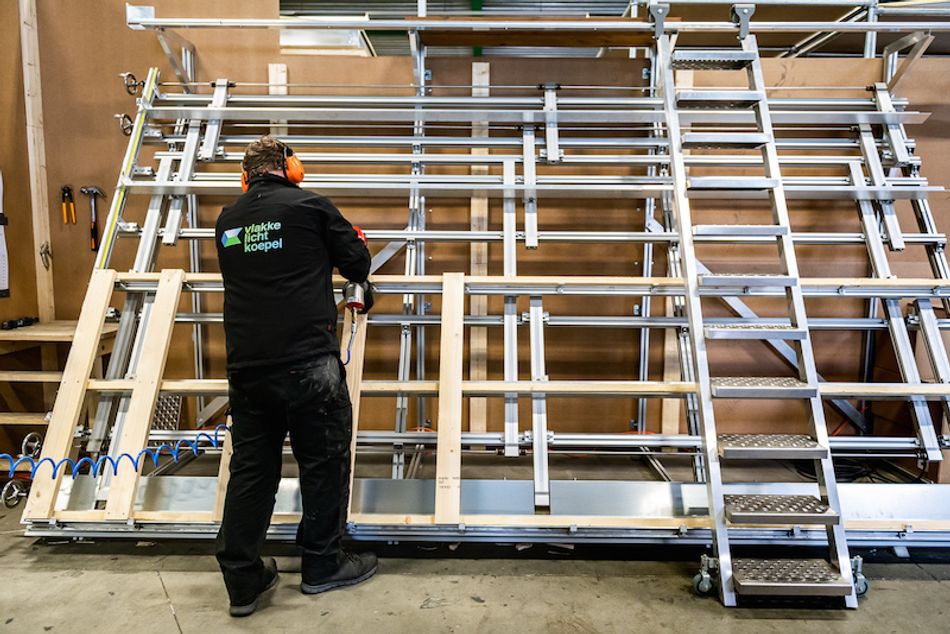Pallet making machine produces pallets 8 minutes quicker
Vlakkelichtkoepel (www.vlakkelichtkoepel.nl), based in the Netherlands, produce high quality, custom-made skylights and roof lights; each skylight requires a custom-sized wooden pallet for packing and transportation purposes.

Vlakkelichtkoepel (www.vlakkelichtkoepel.nl), based in the Netherlands, produce high quality, custom-made skylights and roof lights; each skylight requires a custom-sized wooden pallet for packing and transportation purposes. Manufactured in-house, the wooden pallets were being measured and assembled manually on the floor taking up considerable space and time. With over 10 pallets being produced a day, Vlakkelichtkoepel wanted to design a new system that could yield considerable time savings. Thanks to a new pallet making machine using HepcoMotion’s PDU2 actuators and MCS frame, the process is streamlined, takes up less space and is much quicker. Indeed, time savings of approximately 8 minutes per pallet are achieved, resulting in total savings of £4500 per year.
The process before
Previously, the bottom and top slats were cut to length for each pallet; with each roof type having over 900 size variants, there is considerable variation required with the measuring. The bottom rails were laid out on the floor and two holes were pre-drilled at each end in the top slats. The top laths were then laid out on the bottom laths and screwed down. Measurements were taken diagonally to get the pallets into the hook, then the top laths were unscrewed. This all happened on the floor, which not only took up considerable space but was also very uncomfortable for the operators.
Engineer Jos from Vlakkelichtkoepel explains some of their motivating factors when designing the new system: “We wanted to save time by not having to manually measure the distances of the bottom and top slats, and not having to measure the squareness of the pallet. We also wanted the new system to be ergonomically better so that employees do not have to work on the floor. A final requirement was for one person operation so that all size variants could be made by one person.”
Having worked with linear motion expert HepcoMotion before, Vlakkelichtkoepel immediately contacted HepcoMotion to discuss the application.

The new process
The new process is markedly different to the previous set up with a vertical pallet frame that is adjustable to assemble various sized wooden pallets. HepcoMotion’s aluminium MCS profiles form the rigid base for the frame, and a total of 12 PDU2 belt driven linear actuators provide the necessary adjustment to accommodate different sized pallets.
The 12 PDU2 actuators are mounted vertically onto an MCS frame, arranged in 3 columns with 4 actuators mounted one above the other in each column. The actuators are configured in such a way that they allow for bespoke pallet sizing and design with a choice of positioning of the intermediate battens. The PDU2s in each row are connected with a connection shaft ensuring they all work synchronously. A handwheel on the side adjusts the 3 interconnected actuators, altering the horizontal height of the wooden slats. The array of four vertical actuators adjust the position of the outside and intermediate dimensions, allowing the battens to be fixed in the position most suited to the requirements of each pallet.
Offering a long life and no re-lubrication, PDU2 units are a good option for this application, as they require very little maintenance, ensuring un-interrupted service. PDU2 can also be supplied with a left, right or double shaft configuration, making it straightforward and easy to link the units together and control via the handwheel. Cost was also a consideration for the customer with this system, with the PDU2 appealing for its high performance yet attractive price.
Vlakkelichtkoepel worked closely with the HepcoMotion sales engineer to determine the length of actuators needed to accommodate the range of slat sizes required. After 3D CAD modelling, Jos says: “A budget was made and all parts were ordered from the 3D model”.

System benefits
With the new process, there are a number of steps that are no longer required, saving considerable time and improving the accuracy. Jos explains: “It is no longer necessary to measure in the hook, because the bottom slats are on the left and the installation side is 90° square. The bottom rails no longer need to be measured, as they are flexibly set by the machine. Also, the top laths no longer need to be measured as they are placed at a fixed distance against the mounted lips. And lastly, we no longer need to pre-drill the holes as the top laths are secured with a nail stapler.”
Recommended reading: Harvesting robots could make green asparagus cheaper
The new process is extremely quick and accurate compared to the previous process, allowing any size pallet to be made by one person alone.
With the pallet machine saving £4500 per year, the cost of the system is very quickly earned back, providing substantial savings for the future.